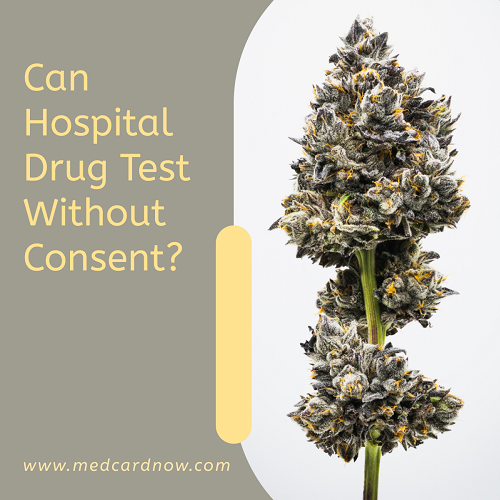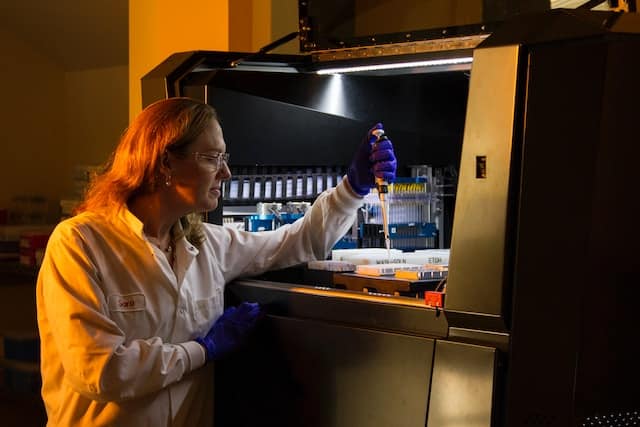
In the landscape of healthcare, maintaining patient rights and confidentiality is paramount. However, the question arises: can hospitals conduct drug testing without patient consent? In this comprehensive guide, we’ll delve into the ethical, legal, and practical aspects surrounding hospital drug testing policies to provide a thorough understanding of patient rights in these scenarios.
Patient Confidentiality and Drug Testing:
The Equal Employment Opportunity Commission (EEOC) mandates the confidentiality of drug test results within hospitals. These results, especially those indicating the presence of lawfully prescribed drugs, must be safeguarded in separate medical files. While frontline managers may access these results for employment-related decisions, stringent protocols ensure patient privacy is upheld.
Related Article: Are Drug Test Results Confidential?
Purpose and Importance of Hospital Drug Testing:
Hospital drug testing serves a multifaceted purpose in the realm of healthcare. By analyzing a patient’s bloodstream composition, medical professionals gain valuable insights into potential substance use, which, in turn, informs treatment decisions and ensures patient safety. This underscores the critical importance of drug testing policies within hospital settings to uphold standards of care and mitigate risks associated with medication interactions.
Must Read: Why Drug Test Is Important? Comprehensive Guide
Hospital Drug Testing Policy For Patients:
The implementation of drug testing policies for patients is a common practice aimed at ensuring the well-being of all individuals within the hospital environment. Patients may undergo testing upon admission or during their stay, particularly if symptoms or medical histories suggest substance use concerns. These tests, often conducted using urine or blood samples, play a pivotal role in guiding treatment protocols and minimizing adverse reactions to medications.
Understanding Drug Tests and Consent
Since employee drug usage can negatively impact a business, employers usually conduct an employee drug test. Drug tests help maintain the integrity of businesses and keep them free from disruption. It also promotes the safety of employees.
However, employers need to understand the basics of employee drug tests and consent to such testing. This also applies to hospitals where patients must consent to drug tests. Sometimes doctors run a drug test on patients without their knowledge. Making the patient understand the usefulness of drug tests in the hospital can help avoid legal issues.
Drug Tests in the Workplace
One major issue in employee drug testing is that several businesses apply federal laws which you must respect.

Federal laws like the Drug-Free Workplace Act of 1988 and the Omnibus Transportation Employee Testing Act of 1991 are important. These laws must be highly considered when implementing an employee drug testing process in your workplace. Furthermore, state laws on drug tests and consent differ from state to state. Therefore, further research is necessary to ensure that drug testing policies and procedures remain compliant with applicable state laws.
Legal Considerations and Compliance:
Both employers and healthcare facilities must adhere to a complex web of federal and state regulations governing drug testing procedures. Acts such as the Drug-Free Workplace Act of 1988 and state-specific statutes dictate testing protocols and consent requirements, necessitating diligent compliance efforts to ensure ethical conduct and protect patient rights. By staying abreast of evolving legal frameworks and integrating best practices into their policies, hospitals can uphold standards of care while safeguarding patient confidentiality.
Bottom line: can a hospital drug test you without consent
Hospitals can drug test without consent if you are incapacitated (unable to provide consent). Furthermore, hospital drug tests must be done under implied consent, as a part of standard care for the treatment.
For instance, those diagnosed with altered mental health may need to undergo drug tests. The doctor may require a urine or blood toxicology screen to assess for potential toxic encephalopathy. If you are fit enough to make medical decisions, you can refuse a toxicology screen (or any test). If possible, the doctor will generally inform patients about lab tests they must perform.
Note that doctors are not law enforcement officers and don’t care about what laws you’ve broken. Doctors are only interested in what’s in your system so that they can treat your medical condition. Doctors maintain confidentiality which means they will not reveal your medical records to law enforcement without a court order. Now you know the answer to can hospitals drug test without consent.
Navigating Your Healthcare Options:
Discovering the benefits of medical marijuana? Medcardnow is here to guide you. Our streamlined process connects you with specialized doctors, ensuring quick access to medical recommendations. Plus, add a medical card for just $20. Take charge of your health journey today.



